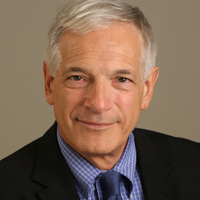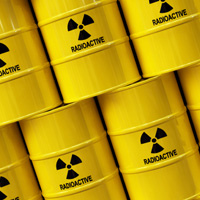Originally published in the Huffington Post April 5, 2012, MacArthur President Robet Gallucci cites evidence of terrorist groups’ desire to steal fissile material – necessary for the manufacture of a nuclear bomb – and calls on the U.S. to take the lead in ending production of such material.
The President traveled to Seoul and back last week so he could deliver his message to an international summit on nuclear security. But he only broke into the news when he made a mildly embarrassing comment that was picked up by an open mike. The summit itself pretty much went unnoticed.
This is unfortunate, but not surprising. Even though recent presidents and presidential candidates have all said that nuclear terrorism poses the greatest threat to the national security, people inside and outside of government do not act as though they believe it. And until they do, real progress toward securing and then eliminating stocks of fissile material will not be made and, in fact, we will continue to add to those stocks.
We should all be concerned that perhaps during one morning rush hour in a major American city, a nuclear weapon of crude and improvised design will be detonated. Such a device's yield will be far smaller than that of the bombs dropped on Hiroshima and Nagasaki, but still tens of thousands will die instantly from the blast, burns and radiation. Over the following month, thousands more will succumb to burns, injuries, or the effects of radiation. The blast area will be uninhabitable for months or longer.
This is not the stuff of pulp fiction or sensational television; it is a credible scenario.
National leaders need to acknowledge this as a shared problem. Nations with nuclear material -- whether military or civilian -- must secure and eliminate stocks of highly enriched uranium and plutonium.
There is clear evidence that terrorist organizations, such as al-Qaeda, are interested in acquiring and using nuclear weapons. They seek to inflict maximum damage with an economy of means; nothing can accomplish this end more effectively and with more certainty than a nuclear weapon.
We have no reason to believe that a traditional defense against this threat will be effective. We cannot expect to prevent access to our territory, and we cannot expect to deter a terrorist who values our death more than his life.
The danger is not only to the United States or Western Europe, as terror attacks in Moscow, Mumbai and Bali demonstrate. Any nation that faces a threat from terrorism should be concerned.
To prevent such a disastrous attack from happening, we must focus on fissile material -- highly enriched uranium and plutonium -- because getting it is the most difficult step in any plan to attack an American city with a nuclear weapon. Once a reasonably sophisticated terrorist group has obtained fissile material, building the weapon and sneaking it into the United States are not major obstacles
The challenge for the United States is that only a very small amount of fissile material -- think of a baseball -- is required for a bomb. There are a couple thousand tons of fissile material spread out over 32 countries, stockpiled mostly in nuclear weapons and nuclear energy programs.
National leaders need to acknowledge this as a shared problem. Nations with nuclear material -- whether military or civilian -- must secure and eliminate stocks of highly enriched uranium and plutonium.
>In addition, we should follow some simple advice: when you find yourself in a hole, first, stop digging.
The United States should forswear the production of fissile material, now or in the future, and urge other countries to follow our example. A fissile materials production ban would mean no more separation of plutonium from spent fuel and no more enrichment of uranium to high levels. It would entail ending our reliance on fissile materials for any purpose. There is no need to reprocess spent fuel for radioactive waste management or to fuel the current generation of nuclear power reactors. Unless a nation was planning to produce more nuclear weapons - Pakistan and India come to mind -- this policy would pose no hardship. If an immediate ban is not politically possible, we should seek a moratorium.
The threat of nuclear terror is not just possible, it is quite plausible; if effective action is not taken, over time, it is probable.




